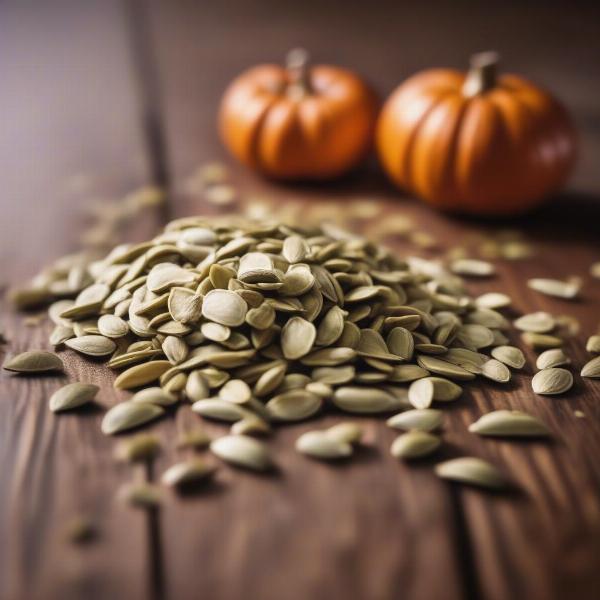Heartworm disease is a serious and potentially fatal parasitic infection affecting dogs worldwide. While conventional preventative medications are highly effective, some pet owners explore natural alternatives. It’s crucial to understand that “natural” doesn’t automatically mean safe or effective. This article will examine natural supplements sometimes discussed in the context of heartworm prevention and management, highlighting their limitations and emphasizing the importance of veterinary guidance. When it comes to your dog’s health, relying solely on unproven remedies can have devastating consequences.
While there’s no scientifically proven natural supplement that kills adult heartworms, some are touted for their potential to support a dog’s overall health during treatment or to act as a repellent. Remember, these are not substitutes for proven preventative medications prescribed by a veterinarian.
Exploring Natural Supplements for Heartworm Support
Several natural ingredients are often mentioned in discussions about heartworm prevention and support. These include herbs, antioxidants, and other compounds believed to boost the immune system or possess potential antiparasitic properties. Let’s examine some of the most common ones:
- Pumpkin Seeds: Ground pumpkin seeds are a traditional remedy believed to have some antiparasitic effects due to the presence of cucurbitacin. However, the concentration of this compound in pumpkin seeds isn’t sufficient to treat or prevent heartworms effectively.
 Pumpkin Seeds for Dog Heartworm
Pumpkin Seeds for Dog Heartworm
-
Garlic: Garlic contains allicin, a compound with purported antimicrobial properties. While some pet owners believe garlic can repel parasites, there’s no scientific evidence supporting its effectiveness against heartworms. Moreover, large amounts of garlic can be toxic to dogs, causing anemia.
-
Black Walnut: Black walnut hulls contain juglone, a compound with insecticidal properties. While black walnut has been used in traditional medicine for parasite control, its efficacy against heartworms in dogs lacks scientific backing and poses potential toxicity risks.
The Importance of Veterinary Guidance
While exploring natural supplements for supporting your dog’s overall health can be tempting, it’s paramount to prioritize proven preventative measures and treatments under the guidance of a qualified veterinarian. Heartworm disease is a severe condition, and relying solely on unproven remedies can be detrimental to your dog’s well-being.
Why Prevention is Key
The American Heartworm Society (AHS) strongly recommends year-round heartworm prevention for all dogs. This is because conventional preventatives are incredibly effective at killing heartworm larvae before they mature into adults and cause significant damage. These medications are readily available and safe for most dogs.
Heartworm Testing and Treatment
If you’re concerned about your dog’s heartworm status, consult your veterinarian immediately. They can perform a simple blood test to diagnose the infection. If your dog tests positive, there are effective, albeit more complex, treatments available.
Conclusion
While natural supplements might play a role in supporting your dog’s overall health, they are not a replacement for proven heartworm prevention. Always consult your veterinarian before starting any new supplement regimen, especially if your dog is already on medication. Protecting your dog from heartworms requires a proactive approach based on sound veterinary advice and established preventative measures. Don’t take chances with your dog’s health—prioritize proven prevention.
FAQ
- Can apple cider vinegar prevent heartworms in dogs? No, there’s no scientific evidence that apple cider vinegar prevents heartworms.
- Are there any home remedies for heartworms? No, home remedies are not effective against heartworms. Consult a vet for proven treatment options.
- What is the best way to prevent heartworms? Year-round preventative medication prescribed by a veterinarian is the most effective way to prevent heartworms.
- What are the symptoms of heartworms in dogs? Symptoms can include coughing, fatigue, difficulty breathing, and weight loss.
- How often should my dog be tested for heartworms? Annual testing is recommended by the American Heartworm Society.
- Is heartworm disease contagious? No, heartworm disease is transmitted through mosquito bites.
- Can heartworms be cured? Yes, there are effective treatments available, but they can be complex and potentially have side effects.
ILM Dog is a leading international dog care website dedicated to providing expert advice on all aspects of dog ownership, from breed selection to health and nutrition. We offer reliable and practical information for dog lovers worldwide. For more insights into dog health, training, and care, explore our comprehensive resources. Contact us at [email protected] or +44 20-3965-8624. ILM Dog is here to support you and your furry companion on every step of your journey together.